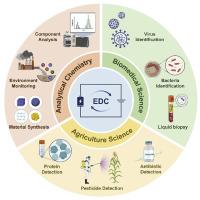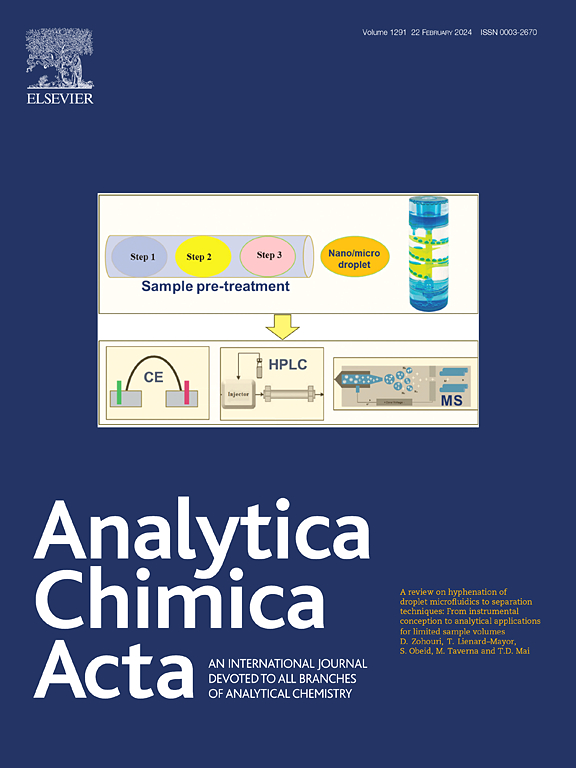Entropy driven-based catalytic biosensors for bioanalysis: From construction to application-A review
IF 6
2区 化学
Q1 CHEMISTRY, ANALYTICAL
引用次数: 0
Abstract
The rapid advancement of precision medicine and the continuous emergence of novel pathogens have presented new challenges for biosensors, necessitating higher requirements. Target amplification technology serves as the core component in biosensor construction. Enzyme-based amplification methods are often sensitive and selective but involve relatively complex operational steps, whereas enzyme-free amplification methods offer simplicity but frequently fail to meet both sensitivity and selectivity simultaneously. Existing research has confirmed that entropy-driven catalyst (EDC) biosensors not only fulfills the demands for sensitivity and selectivity concurrently but also offers ease of operation and flexibility in construction. In this review, we summarize the key advantages of EDC, explore how to construct DNA nanomachines based on these advantages to achieve intracellular detection and simultaneous detection of multiple targets, as well as point-of-care testing (POCT) to address practical issues in clinical diagnosis and treatment. We also anticipate potential challenges, propose corresponding solutions, and outline future development directions for EDC-based biosensors in practical clinical applications. We firmly believe that EDC sensors will emerge as a crucial branch within the realm of biosensor development.


基于熵驱动的生物分析催化传感器:从构建到应用综述
精准医学的快速发展和新型病原体的不断出现,对生物传感器提出了新的挑战,提出了更高的要求。靶扩增技术是构建生物传感器的核心技术。基于酶的扩增方法通常具有敏感性和选择性,但涉及相对复杂的操作步骤,而无酶扩增方法虽然简单,但往往不能同时满足敏感性和选择性。已有的研究证实,熵驱动催化剂(EDC)生物传感器不仅能同时满足灵敏度和选择性的要求,而且具有易于操作和结构灵活的特点。在本文中,我们总结了EDC的主要优势,并探讨了如何基于这些优势构建DNA纳米机器来实现细胞内检测和多靶点同时检测,以及点护理检测(POCT),以解决临床诊断和治疗中的实际问题。我们还预测了潜在的挑战,提出了相应的解决方案,并概述了基于edc的生物传感器在实际临床应用中的未来发展方向。我们坚信,EDC传感器将成为生物传感器发展领域的一个重要分支。
本文章由计算机程序翻译,如有差异,请以英文原文为准。
求助全文
约1分钟内获得全文
求助全文
来源期刊

Analytica Chimica Acta
化学-分析化学
CiteScore
10.40
自引率
6.50%
发文量
1081
审稿时长
38 days
期刊介绍:
Analytica Chimica Acta has an open access mirror journal Analytica Chimica Acta: X, sharing the same aims and scope, editorial team, submission system and rigorous peer review.
Analytica Chimica Acta provides a forum for the rapid publication of original research, and critical, comprehensive reviews dealing with all aspects of fundamental and applied modern analytical chemistry. The journal welcomes the submission of research papers which report studies concerning the development of new and significant analytical methodologies. In determining the suitability of submitted articles for publication, particular scrutiny will be placed on the degree of novelty and impact of the research and the extent to which it adds to the existing body of knowledge in analytical chemistry.
 求助内容:
求助内容: 应助结果提醒方式:
应助结果提醒方式:


